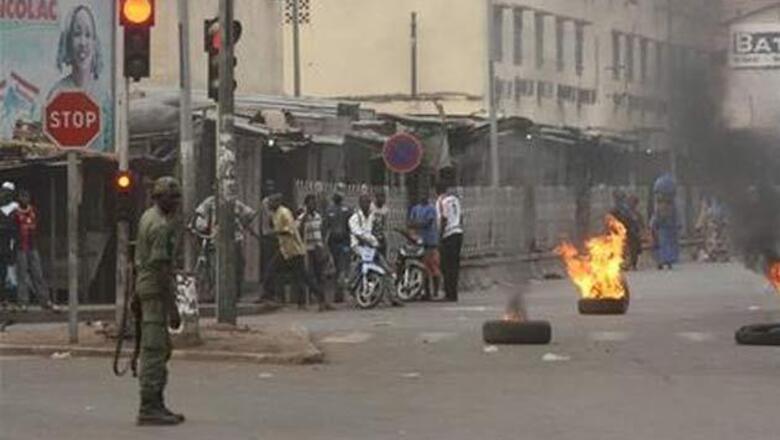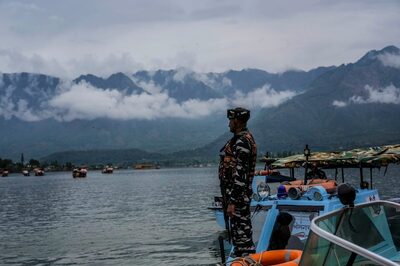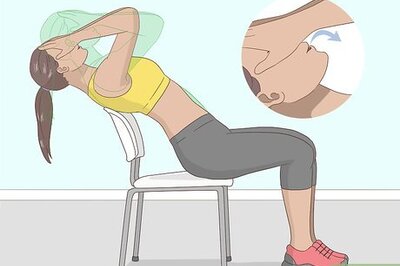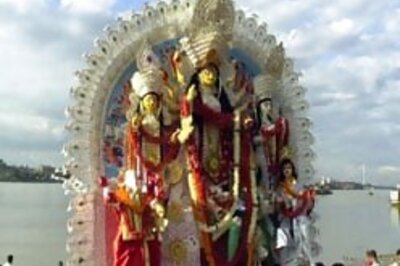
views
Mali: Soldiers looted Mali's presidential palace hours after they declared a coup on Thursday, suspending the constitution and dissolving the institutions of one of the few established democracies in this troubled corner of Africa.
The whereabouts of the country's 63-year-old president Amadou Toumani Toure, who was just one month away from stepping down after a decade in office, could not be confirmed.
The soldier heading the group of putschists said on state television late Thursday that Toure is "doing well and is safe." Capt Amadou Haya Sanogo refused to say where the ousted leader is being kept, and did not make clear if they are holding him.
The scene in this normally serene capital was unsettling to those proud of Mali's history as one of the few mature democracies in the region. Soldiers smelling of alcohol ripped flat-screen TVs, computer monitors, printers and photocopiers out of the presidential palace, carting them off in plain sight. Others in pickup trucks zoomed across the broad avenues, holding beer bottles in one hand and firing automatic weapons with the other.
The mutineers said they were overthrowing the government because of its mishandling of an ethnic Tuareg insurgency in the country's north that began in January. Soldiers sent to fight the separatists have been killed in large numbers, often after being sent to the battlefield with inadequate arms and food supplies, prompting fierce criticism of the government.
The coup began on Wednesday, after young recruits mutinied at a military camp near the capital. The rioting spread to a garrison thousands of miles (kilometers) away in the strategic northern town of Gao.
At dawn on Thursday, some 20 soldiers huddled behind a table, facing the camera on state television. They introduced themselves as the National Committee for the Reestablishment of Democracy and the Restoration of the State, known by its French acronym, CNRDR.
"The CNRDR representing all the elements of the armed forces, defensive forces and security forces has decided to assume its responsibilities and end the incompetent and disavowed regime of Amadou Toumani Toure," they said, reading from a statement. "The objective of the CNRDR does not in any way aim to confiscate power, and we solemnly swear to return power to a democratically elected president as soon as national unity and territorial integrity are established."
The soldiers said they intended to hand over power to an elected government, though they made no mention of the fact that elections were supposed to be held on April 29. Toure was not in the race, as he has already served the maximum two terms.
Criticism of the coup was swift. France is suspending all government cooperation with Mali, except for aid. In Washington, State Department spokeswoman Victoria Nuland said officials were meeting to discuss whether to cut off the $137 million in annual US assistance.
The United Nations Security Council issued a statement denouncing the coup, calling for the safety and security of the president, for the troops to return to their barracks, and for the restoration of democracy.
The coup is a major setback for Mali, a landlocked nation of 15.4 million which is dirt-poor but fiercely proud of its democratic credentials. The current president, a former parachutist in the army, came to power himself in a 1991 coup. He surprised the world when he handed power to civilians, becoming known as "The Soldier of Democracy." A decade later, he won the 2002 election and was re-elected in 2007. There was never any question that Toure - known by his initials ATT - would step down at the end of his term next month.
"The situation is grave for our democracy and our republican institutions," said Ali Nouhoum Diallo, the former president of Mali's National Assembly. "We cannot approve the seizing of power through force."
The last statement from the presidency came via Twitter from the government's official account. Late Wednesday, they said: "This is not a coup. It's just a mutiny."
But as the sound of heavy weapons rang out, the emboldened soldiers encircled the palace. Contacted by telephone, an officer at the palace who requested anonymity because he was not authorized to speak to the press said that the president's bodyguards had failed to fight the renegade soldiers when they burst in. They searched the grounds but could not find Toure.
The mutinous soldiers imposed a nationwide curfew. A flight headed to Bamako was forced to make a u-turn in the air after the borders were closed. At noon, soldiers were still riding on scooters and in pickup trucks shooting in the air, and local media was reporting casualties from stray bullets.
At midday Thursday, coup spokesman Lt. Amadou Konare ordered soldiers to stop randomly shooting, and called on the population to stay calm in a communique read on state television.
In recent years, the US military has been helping train Malian troops in counterterrorism tactics to fight al-Qaida-linked militants who have established bases in Mali's northern desert, the same area that is now beset by a Tuareg uprising.
A traditionally nomadic people spread across the Sahara Desert, the Tuaregs have risen up against the central government in Mali several times since the country's independence from France in 1960.
The newest rebellion launched in mid-January broke years of relative peace, and has been fueled by the return of Tuaregs from Libya who had fought in Moammar Gadhafi's army.
After briefing the Security Council late Thursday, the UN's head of political affairs B. Lynn Pascoe was asked if the coup in Mali was connected to Tuareg alliances with Gadhafi.
"Of course there is a relationship," Pascoe said, adding that an estimated 1,500 to 2,000 Tuaregs had returned to Mali after Gadhafi's fall. "They clearly added much more firepower and drive to this operation, which made it very difficult for the Malian army to deal with."



















Comments
0 comment